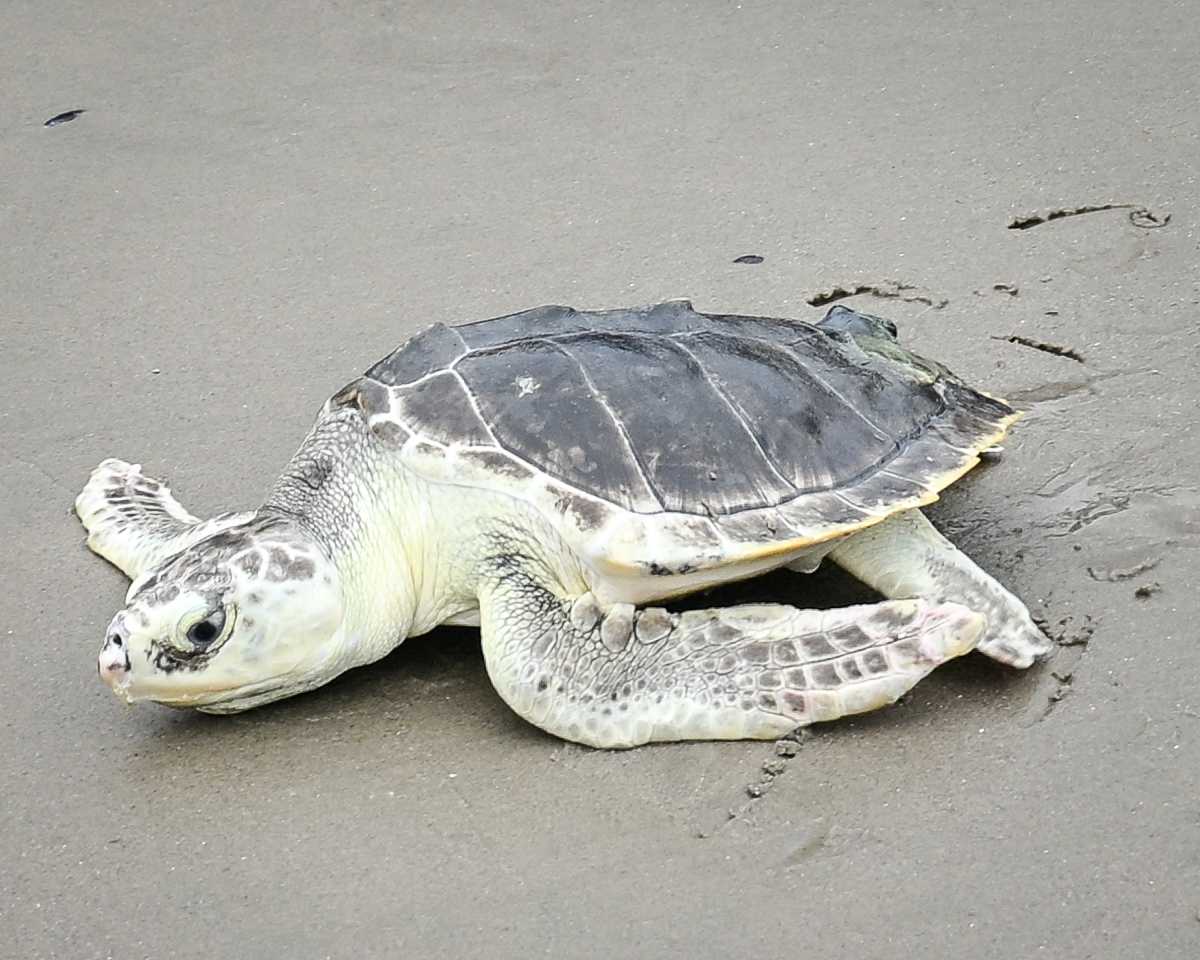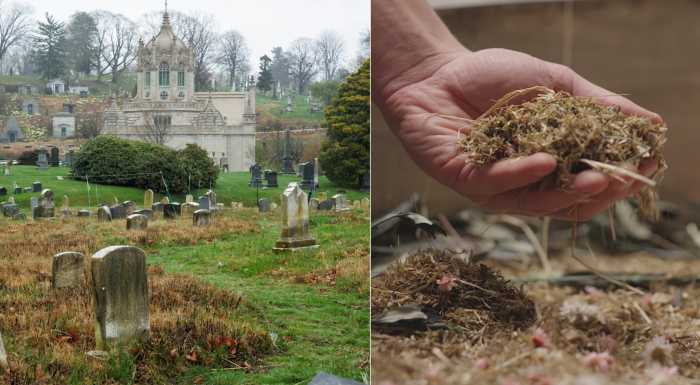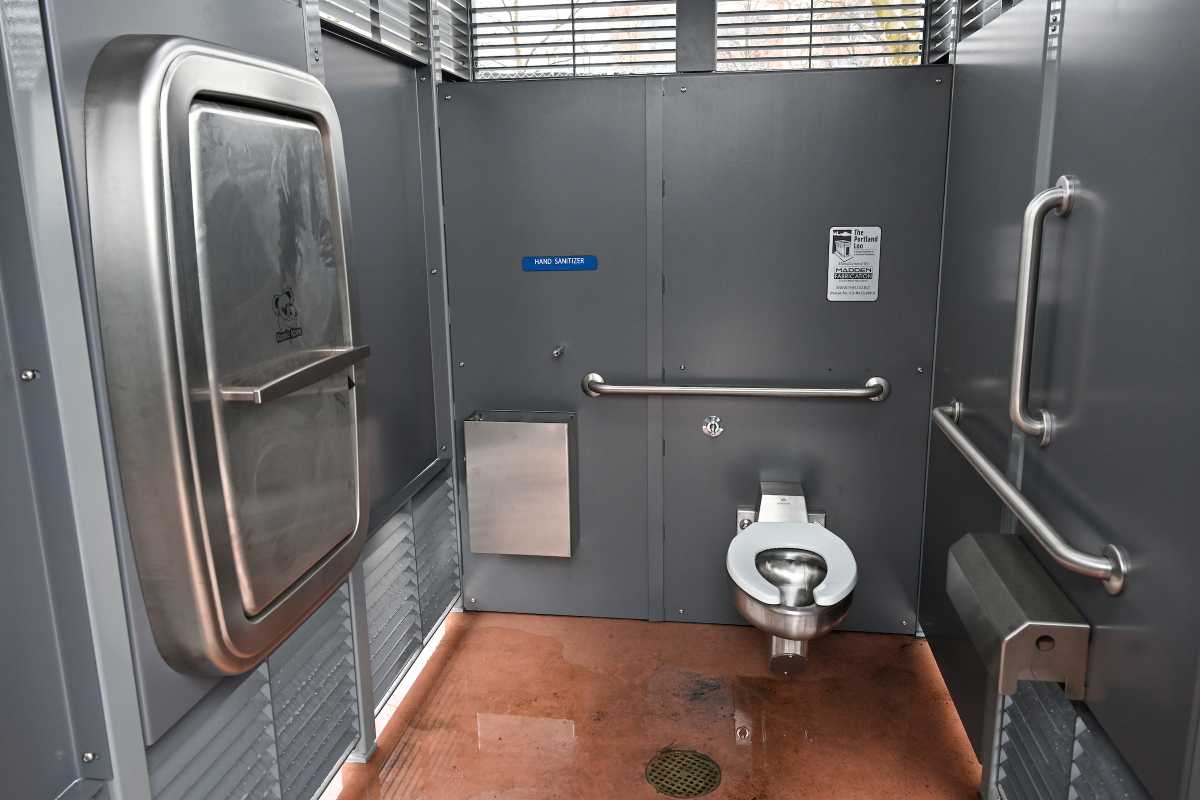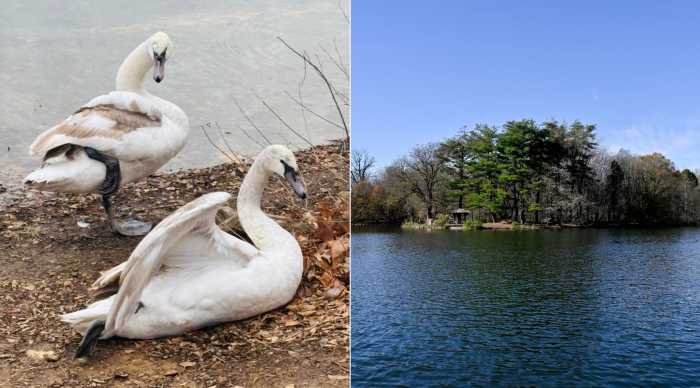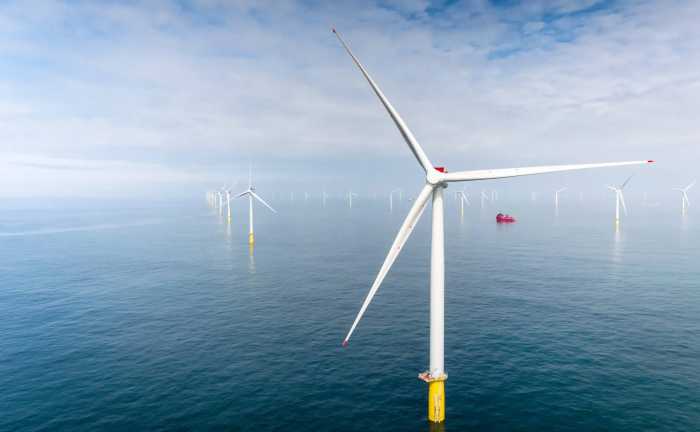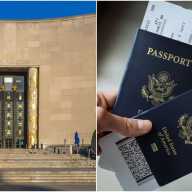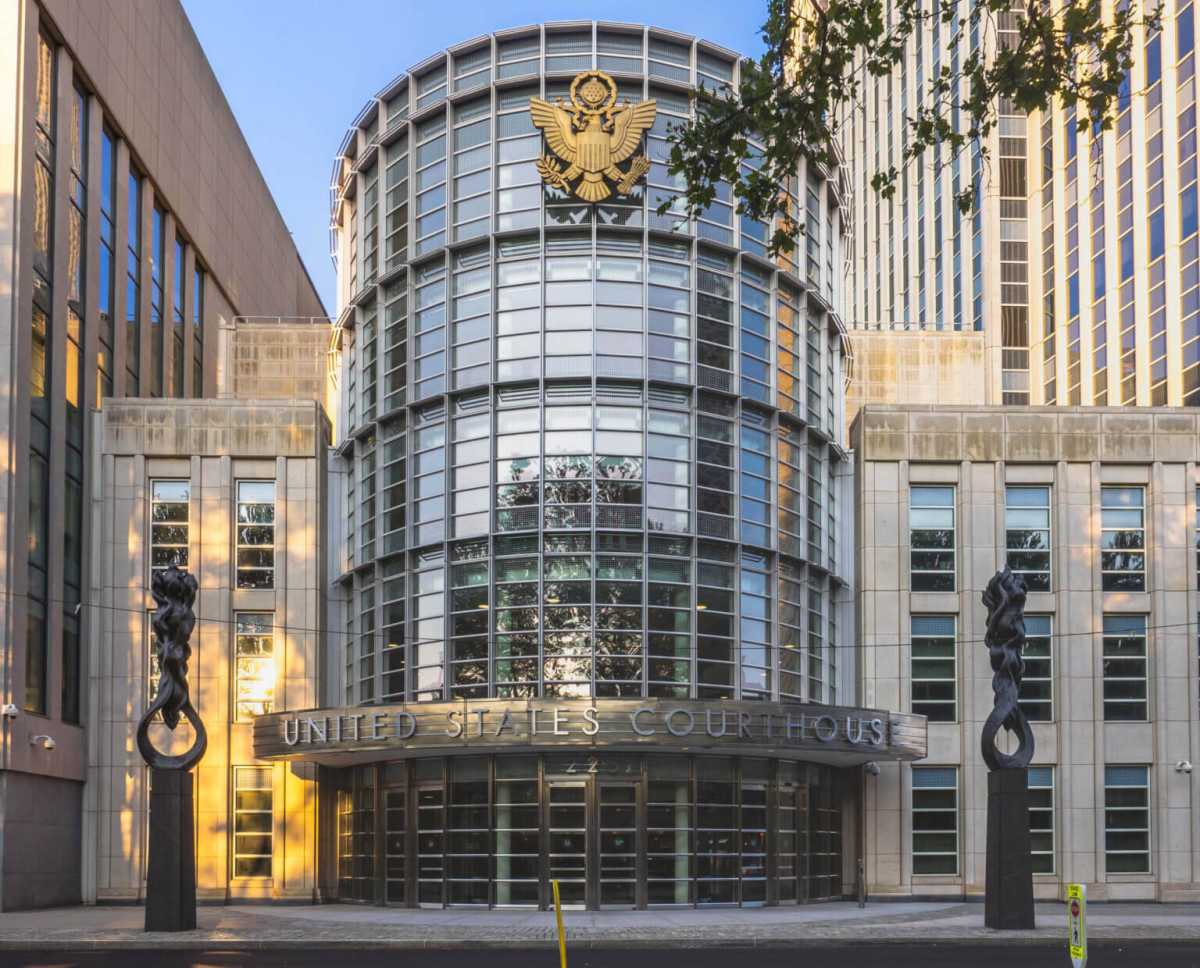Elton, an endangered Kemp’s ridley sea turtle, was the star of the show on Coney Island Beach on Aug. 6, as he was released into the Atlantic Ocean after a monthslong rehabilitation.
The turtle, who experts estimate was between 3 and 5 years old, was stranded on a beach in Massachusetts in the fall of 2024. He was hypothermic, or “cold-stunned,” a condition that occurs when cold-blooded turtles fail to migrate south before northern waters drop, typically below 50 degrees Fahrenheit, affecting their ability to swim and survive.
The Massachusetts Audubon Society and the Wellfleet Bay Wildlife Sanctuary recovered Elton and assessed his condition. Turtles Fly Too, a nonprofit organization dedicated to rescuing and relocating endangered species — primarily sea turtles — then flew Elton, along with 19 fellow Kemp’s ridley sea turtles, to the Atlantic Marine Conservation Society in Hampton Bays, Long Island.
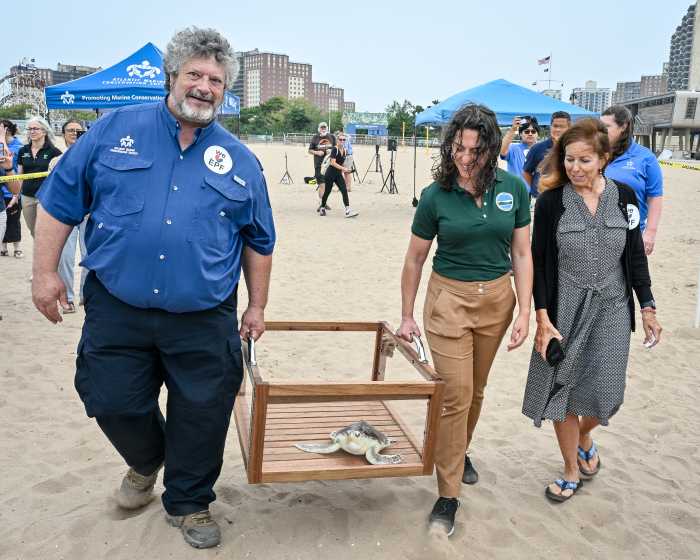
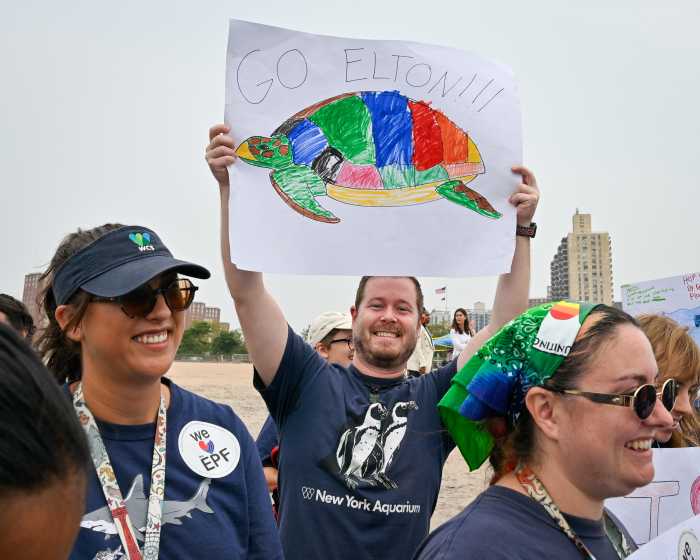
Robert A. DiGiovanni, founder and chief scientist of AMSEAS, told Brooklyn Paper that the organization has received 100 turtles from Massachusetts since 2020. Elton is the 91st turtle AMSEAS has released back into the ocean.
“We triage them, assess them with our animal care team, and then they go into basically, like if we go to a doctor, they’re going to get whatever medication [or] food they need,” DiGiovanni explained. “We’re trying to get them to eat, give them fluids, warm them up, and then they progress [to be released].”
AMSEAS has responded to a record number of animals washing up on New York’s beaches — 1,700 calls since 2017. DiGiovanni emphasized the importance of involving young people, such as New York Aquarium summer camp participants, in marine wildlife rescue efforts.
“That’s really where it starts. The kids are going out on the beach. They’re going to listen to what we say. They’re going to pay attention,” DiGiovanni said. “It’s really important for us to think about how much of an impact we have on the environment. We can choose whether it’s positive or negative.”
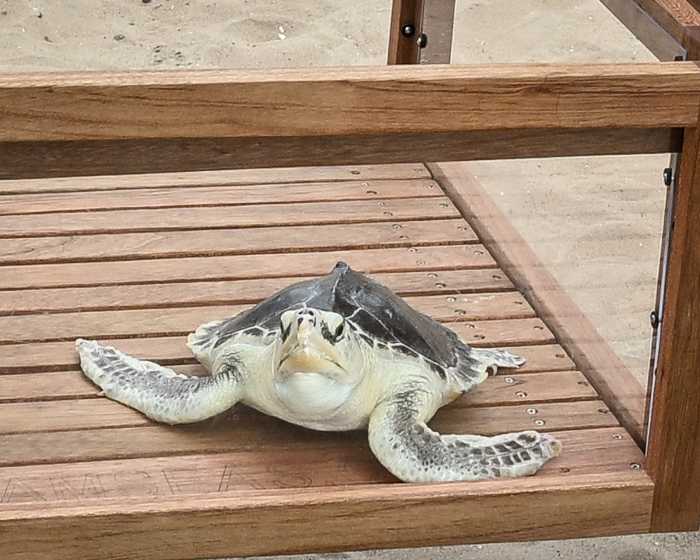
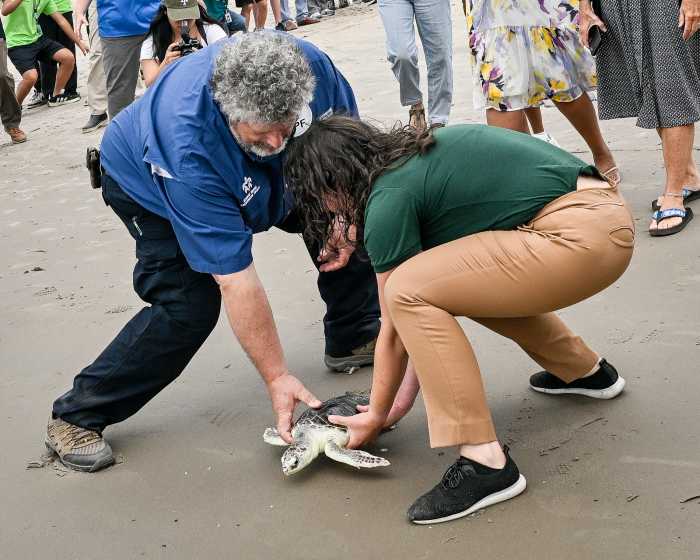
Leigh Ann Clayton, director of the Wildlife Conservation Society’s New York Aquarium, told Brooklyn Paper that the rehabilitation process for marine wildlife can vary.
“But in general, you slowly bring them back up to the appropriate temperature. You treat any conditions they’ve developed. Quite often, they have infections because their immune systems weren’t working,” Clayton said. “You slowly refeed them. You get their weight back, you clear up their infections, [and] you heal any wounds they have.”
Now that Elton — who is equipped with a small monitoring tag to collect data and ensure he is thriving — is back in his natural habitat, he’ll once again engage in the turtle equivalent of smelling the ocean, finding food, gaining weight and, hopefully, heading south before temperatures drop again.
“Turtles are very migratory,” Clayton said. “They’ll go up and down the coast following water temperatures and food sources. And Kemp’s ridley specifically, will go over into the Gulf area and do their breeding on the shores there.”
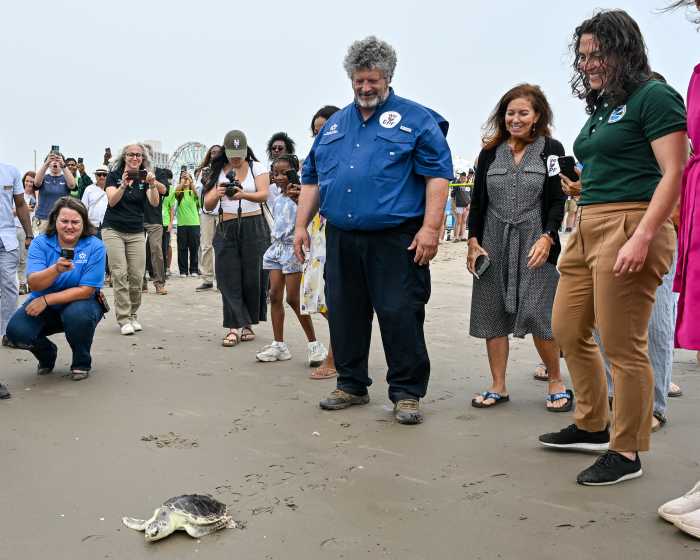
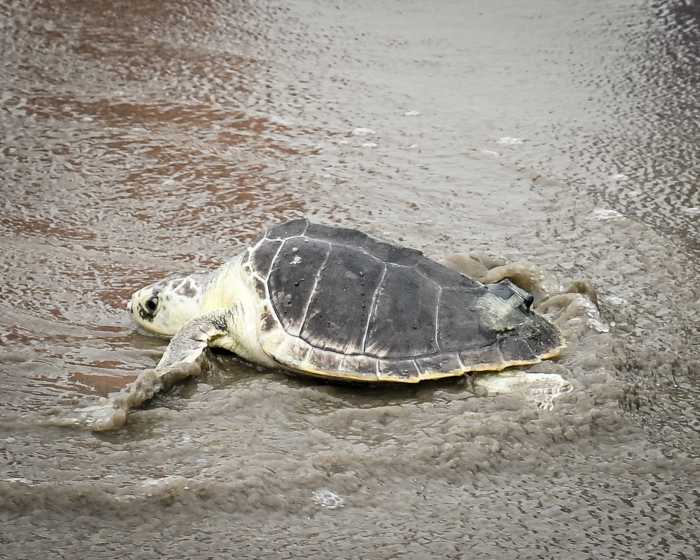
Department of Environmental Conservation Commissioner Amanda Lefton stressed that, thanks to Gov. Kathy Hochul’s continued environmental commitment, this year’s state budget included a record-breaking Environmental Protection Fund.
“We also have another $500 million for clean water infrastructure, which has been so instrumental in cleaning up our waterways, which brings the state’s investment to $6 billion since 2017,” said Lefton, who also lauded the collaboration between the Ocean and Great Lakes Coalition, the Atlantic Marine Conservation Society, the Natural Resources Defense Council and the Citizens Campaign for the Environment.
“I think during a time especially where we see the federal government really just rolling back critical protections for the environment, rolling back funding for environmental protection, the partnerships and the leadership that New York state has had is more important now than ever,” Lefton said.
Beachgoers who find a sick, injured, entangled or dead marine mammal or sea turtle are urged to contact the New York State Stranding Hotline at 631-369-9829.


